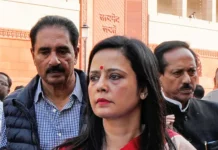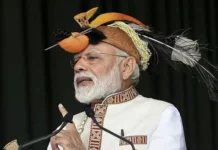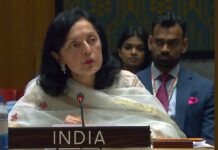
DOHA: As negotiators heaved a sigh of relief at having salvaged the Doha talks with an 11th-hour pact that kept the Kyoto Protocol alive, climate activists were livid at another squandered opportunity for a decisive action to save the planet from catastrophic effects of global warming.
After marathon talks that stretched by a day, sleep- deprived diplomats from almost 200 countries agreed last night to a face-saving deal that would see the historic Kyoto Protocol extended by eight years albeit without any new or ambitious commitments to cut greenhouse gases.
They also decided to put off by another year a concrete decision on ways to mobilize long-term finance for poorer nations to carry forward their mitigation efforts and at the same time launch adaptation measures to deal with the rapidly visible impacts of climate change.
Coming in the backdrop of megastorm Sandy that devastated a major portion of the US east coast and more recently cyclone Bopha whose victims and losses the Philippines is still counting, the talks, however, failed to move world nations into visible actions that would immediately curtail emissions to save the planet.
The deal on the Kyoto Protocol extension was struck after much bickering and despite objections by Russia as well as reservations by the US, and after the host Qatar made repeated pleas to save the failing talks.
The Climate Action Network (CAN), an umbrella group of 700 NGOs from around the world, said the Doha talks had failed to deliver increased cuts to carbon pollution, nor did they provide any credible pathway to USD 100 billion per year in finance by 2020 to help the poorest countries deal with climate change.
“Two weeks of negotiations have not altered that path and that politicians need to reflect the consensus around climate change through funds, targets and effective action,” said Greenpeace International Executive Director Kumi Naidoo.
Others accused the developed world, singling out the US as the biggest deal blocker, of having failed in delivering their responsibility to save the planet and help the poor ones foot the bills of a catastrophe for which they are least responsible.
WWF head of delegation, Tasneem Essop, said Doha was supposed to be an important element in setting up a fair, ambitious and binding deal in 2015 and therefore needed to rebuild trust and instill equity.
“These talks have failed the climate and they have failed developing nations… The Doha decision has delivered no real cuts in emissions, it has delivered no concrete finance, and it has not delivered on equity,” said Essop.
The activists said the talks delivered at best a very vague outcome that would require enormous political will to yield increased ambition.
Climate finance that was at the core of this year’s talks failed to make any consequential progress with the countries only reaffirming their commitments and laying out no quantitative results on the table as to how they would upscale finances for the USD 100 billion Green Climate Fund.
“Developing countries have come here in good faith and have been forced to accept vague words and no numbers,” said Tim Gore, International Climate Change Policy Advisor for Oxfam, calling it a “betrayal.”
Wael Hmaidan, Director of CAN-International, said it’s time people demand leadership from their governments on the issue of climate change before it was too late.-PTI






